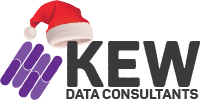The digital landscape is undergoing a profound transformation, often referred to as the next digital revolution. At the heart of this shift are data and artificial intelligence (AI), which are reshaping industries, driving innovation, and creating new business models. However, as companies harness the power of data and AI, they must navigate a complex web of privacy and security concerns. This blog post explores how data and AI are driving this revolution and the critical importance of addressing privacy and security issues.
Data and AI: Catalysts for Change
- Enhanced Decision-Making: Data-driven decision-making is transforming the way organizations operate. By leveraging AI algorithms to analyze vast amounts of data, companies can gain insights that were previously unattainable. This allows businesses to make informed decisions, optimize operations, and anticipate customer needs, leading to improved efficiency and profitability.
- Personalized Experiences: AI enables businesses to deliver personalized experiences to customers by analyzing their behaviors, preferences, and interactions. From tailored recommendations on e-commerce platforms to customized marketing campaigns, data-driven personalization enhances customer satisfaction and loyalty, ultimately driving revenue growth.
- Automation and Efficiency: AI-powered automation streamlines processes across various industries, reducing the time and resources required for repetitive tasks. This not only increases operational efficiency but also allows employees to focus on more strategic and creative initiatives, fostering innovation within organizations.
- Predictive Analytics: The ability to predict trends and customer behavior is a game-changer for businesses. By utilizing AI and machine learning algorithms, organizations can analyze historical data to forecast future outcomes, enabling proactive decision-making and strategic planning.
- New Business Models: The integration of data and AI is paving the way for innovative business models. Companies are leveraging data to create new products and services, develop subscription-based models, and explore data monetization strategies, transforming traditional industries.
The Privacy and Security Imperative
While the benefits of data and AI are significant, they also raise serious concerns regarding privacy and security. As organizations increasingly rely on data to drive their operations, they must take proactive measures to protect sensitive information. Here are some critical considerations:
- Data Privacy Regulations: With the introduction of stringent data privacy regulations such as GDPR, CCPA, and others, organizations must ensure compliance to avoid hefty fines and legal repercussions. This involves implementing data protection measures, conducting regular audits, and maintaining transparency with customers about how their data is used.
- Informed Consent: Companies must prioritize obtaining informed consent from users before collecting and processing their data. Clear and concise privacy policies should outline how data will be used, stored, and shared, allowing users to make informed decisions about their participation.
- Data Minimization: Adopting a data minimization approach—collecting only the data necessary for specific purposes—reduces the risk of exposure in the event of a data breach. Organizations should regularly assess the data they collect and eliminate unnecessary data to enhance security.
- Robust Security Measures: Implementing strong security protocols is crucial for protecting sensitive data. This includes encryption, access controls, and multi-factor authentication to safeguard information from unauthorized access and cyber threats.
- AI Ethics and Accountability: As organizations increasingly rely on AI algorithms to make decisions, ensuring accountability is paramount. Companies must establish ethical guidelines for AI development and deployment, addressing potential biases and ensuring transparency in AI-driven decisions.
- Employee Training and Awareness: Organizations should invest in training programs to educate employees about data privacy and security best practices. Empowering employees with knowledge helps create a culture of security within the organization and reduces the risk of human error leading to data breaches.
Conclusion
Data and AI are poised to drive the next digital revolution, transforming how businesses operate and interact with customers. However, as organizations embrace these technologies, they must remain vigilant in addressing the privacy and security concerns that accompany them. By implementing robust data protection measures, fostering a culture of compliance, and prioritizing ethical AI practices, companies can harness the power of data and AI while safeguarding sensitive information.
At Kew Data Consultants, we are committed to helping organizations navigate the complexities of data privacy and security in the age of AI. If you’re looking to enhance your data protection strategies and ensure compliance with evolving regulations, contact us today. Together, we can build a future where innovation and security go hand in hand, empowering businesses to thrive in the digital age.
